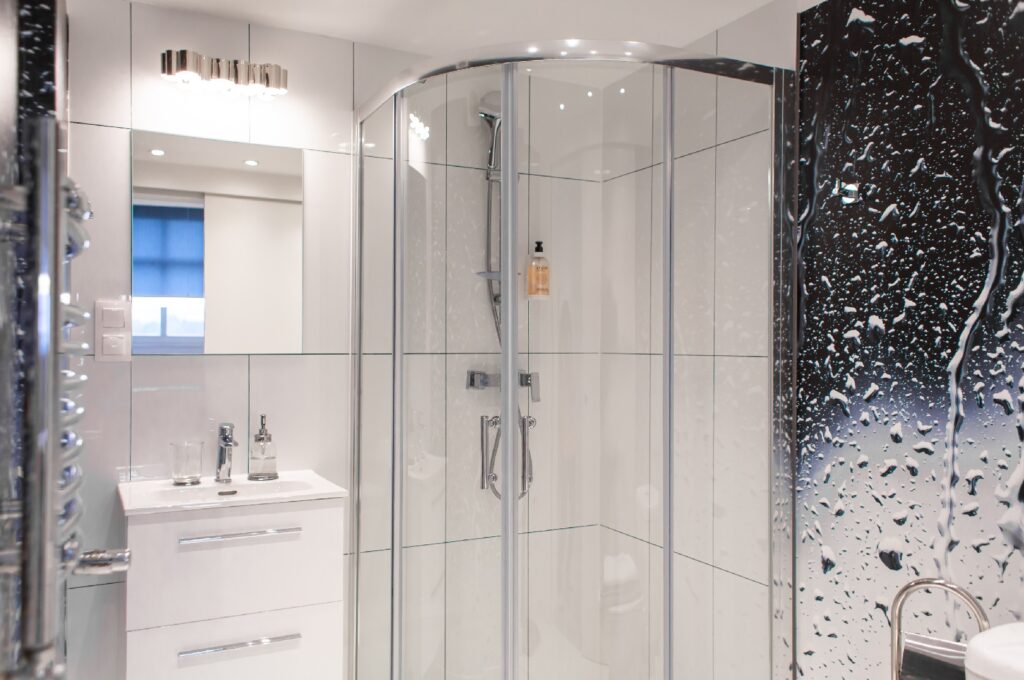5 Things Nobody Informs You around Shower & Tub Wall Panels
5 Things Nobody Informs You around Shower & Tub Wall Panels
Blog Article
{Website What are your thoughts on Things To Look Out for Before Hiring a Plumbing Company? We recommend that you clean your acrylic bathing product made of Delta ProCrylic or Acrylic with Innovex Technology with non-abrasive soaps and cleaners, such as: When it’s time to clean, always use a terry cloth towel, soft cloth or sponge to avoid scratching the acrylic surface. Don’t use abrasive scrubbing pads, steel wool or sponges, cause permanent damage to the acrylic material. If you use a drain cleaner or clog remover, be sure to rinse thoroughly with water so no product is left standing near the drain. Some chemicals and cleaners may deteriorate acrylic surfaces, causing cracks and, potentially, property damage. To avoid this, don’t use cleaning products that state on their label that they are not suitable for use on Acrylic, ABS, Polystyrene or Plastic. Be sure to check the label of any product before you apply it to the surface; it’s easier to avoid damage than to try to remedy it. Chemicals we do not recommend using to clean acrylic showers/tubs: When you’re ready to apply sealant, a little planning goes a long way. Pick up some painter’s tape and use it to mask off the seam to help make cleaning up easier. When you’re applying the bead, use a constant, steady speed to avoid an uneven finish. Use a caulk tool or a plastic spoon to work the sealant into the joint. Wetting the tool with denatured alcohol will help create a smooth finish. Follow the directions on the back of the tube for cure time. Certain chemicals and cleaners may deteriorate acrylic surfaces, causing cracks and, potentially, property damage. After you’re finished applying it, clean up the product surface and remove any excess sealant with denatured alcohol. Don’t use solvents (turpentine, lacquer thinner, mineral spirits, paint thinner, MEK, xylene, acetone, naphtha, etc.) that can wreak havoc on an acrylic surface. With a little care and consideration, you can prevent damage to your acrylic shower or tub. Keep a supply of soft cloths handy and remove any damaging products or abrasive scrubbing items from the bathroom to ensure they aren’t around when it’s time to clean. https://www.deltafaucet.com/design-innovation/inspiredliving/how-to-clean-acrylic-shower We hope you enjoyed our section on Finding the Right Plumbing Expert. Thanks for finding the time to browse our article post. Kindly take the time to share this page if you enjoyed it. Thanks a bunch for your time. Please visit our blog back soon.
Acrylic bathrooms, shower trays, as well as various other acrylic bathroom ware have come to be much more usual in bathrooms in recent times. Not as sophisticated and also resilient as enamel as well as porcelain baths and components, they are a lot more budget-friendly and offer quite much the exact same basic purpose. Some usual instances of damage to acrylic washroom components consist of discoloration, fractures, holes, and so on.Scraped shower or bathroom surface area
Polymer bathroom fixtures are not abrasion-resistant like enamel ranges. They are more vulnerable to scratches and less durable. Being a very soft product, acrylic scratches can also be concealed without finish or filling. For these, you need to seek professional assistance for your bathroom repairs. As a prevention idea, avoid using abrasive sponges when cleansing. Instead, you ought to use a simple fluid cleanser with a soft pad.Chemical Reactions
Occasionally, people try to repaint the whole surface of their acrylic bath by themselves either because they do not such as the color to conceal imperfections. You must never ever use paint cleaner on acrylic baths. Paint cleaners do not respond with the surface area of steel bathrooms, they destroy acrylic baths irreversibly.Bath Staining
With long term use of acrylic bathrooms comes discoloration or discoloration. While some discolorations can be eliminated quickly, using special chemicals, others need that the bath be resprayed. Aromatherapy oils loosen up the dust in some cases thereby recovering the bath to its former magnificence.Split Acrylic Baths
The lifespan of acrylic and fiberglass bathrooms is up to 15-20 years for shower frying pans as well as baths, normally. Splits in an acrylic shower tray are most likely among the most convenient problems to fix for a repair work specialist. This is the exact same for PVC, resin, and other such products.
Acrylic baths, shower trays, as well as other acrylic shower room ware have become a lot more common in bathrooms in recent times. You must never ever use paint remover on acrylic baths. Paint eliminators do not react with the surface area of steel bathrooms, they damage acrylic baths irreversibly. With prolonged use of acrylic bathrooms comes staining or staining. The life expectancy of acrylic as well as fiberglass baths is up to 15-20 years for shower pans and baths, typically.How to clean Acrylic shower
USE THESE NON-ABRASIVE CLEANERS
DO NOT USE THESE CLEANERS
Sealant Application Tips

Get A Quote